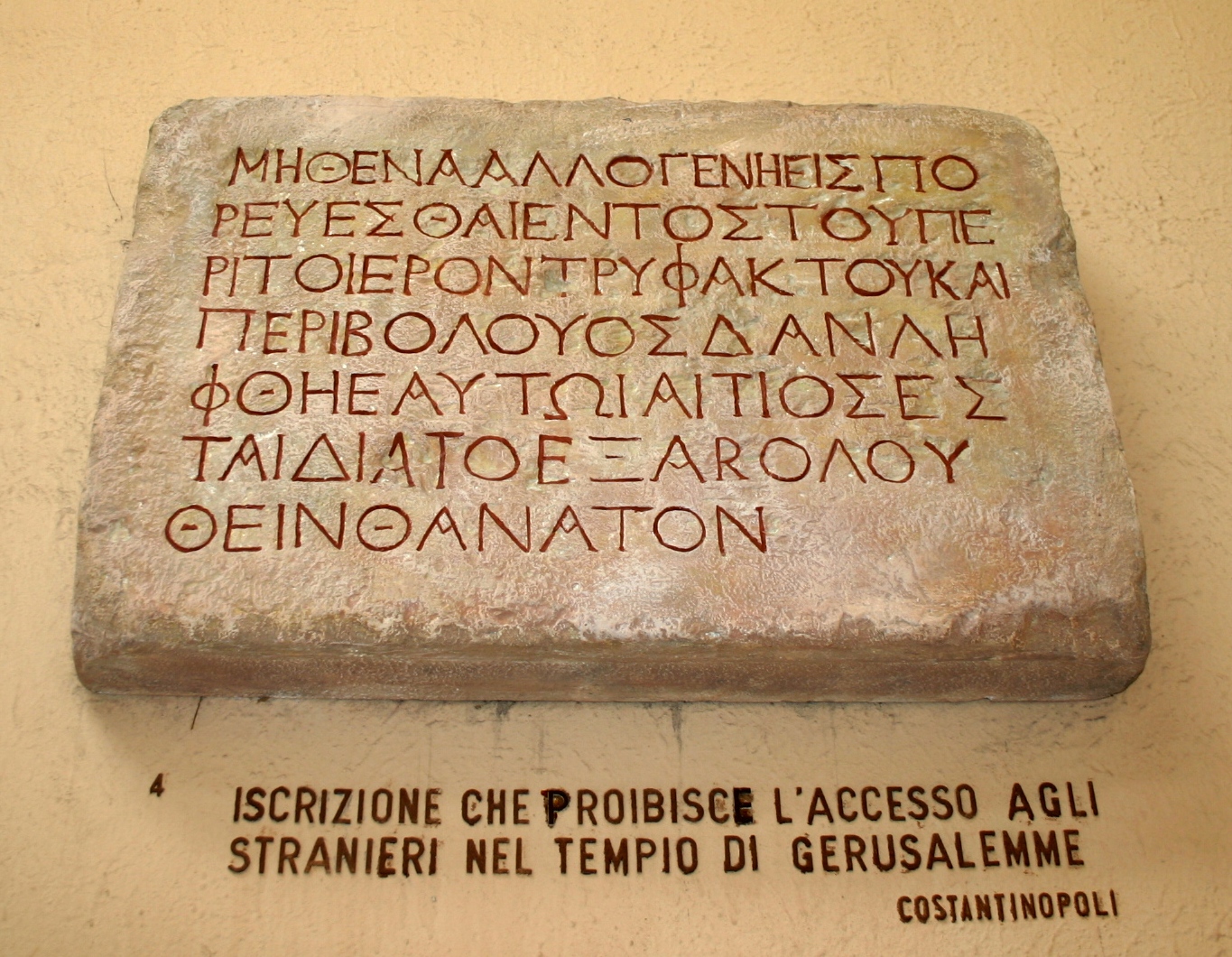Not What We Think
Sixteenth Sunday of the Year B (19 Jul 2015)
Homily of Fr. Paul Panaretos, S.J.
We know that some words we use daily have more than single meanings. Take hot and cool. Each can mean a different way we sense temperature. In conversation their meanings change to mean something is excellent—the restaurant is cool; someone is stunningly attractive—the fashion model is hot. We rarely give words thought.
 The bible, though, uses certain words with meanings very different from what we expect. One of them is peace. We think absence of war or an end to hostilities. The word peace points to both in the bible; it is not its key meaning. The bible connects peace with God. In fact, peace is God; people who experience peace experience it as God’s presence.
The bible, though, uses certain words with meanings very different from what we expect. One of them is peace. We think absence of war or an end to hostilities. The word peace points to both in the bible; it is not its key meaning. The bible connects peace with God. In fact, peace is God; people who experience peace experience it as God’s presence.
St. Paul put it crisply: [Christ Jesus] is our peace. To illustrate St. Paul used imagery of the temple; it was not alien to his contemporaries as it is to us. The temple was its own neighborhood1: it had large courtyards; colonnades; and a complex of buildings. A barrier surrounded the building enshrining God’s presence. Gentiles as well as Jews deemed not pure were not allowed beyond it; a sign warned Gentiles with death.
That dividing wall was established to protect God’s holy place; but it had the unintended consequence of denying access to God to those who needed it. Long before Jesus God revealed through prophets that Gentile nations would join themselves to the restored Israel.2 By dying and rising Jesus completed its restoration: he creat[ed] in himself one new person in place of the two.
Putting that enmity to death by…his cross suggests peace as we think of it. Yet hostility’s end is no human action but a divine one—creating. Christian peace is much more than end of hostility: it is God acting in Jesus by their Spirit. The Spirit gives all peoples access to the Father, who is peace and the source of peace for all peoples.
Other impressions from scripture we heard help us notice ways divine peace registers. The shepherd guided and protected sheep. Left to themselves sheep eat what is around them then lay down. They do not search for food; shepherds drive them so they have food and then rest in the calm of a meadow. Little wonder that people whose lives depended on flocks would give God the title shepherd.3Security and nourishment for people were achieved by staying near God and living God’s justice.
Other impressions from scripture we heard help us notice ways divine peace registers. The shepherd guided and protected sheep. Left to themselves sheep eat what is around them then lay down. They do not search for food; shepherds drive them so they have food and then rest in the calm of a meadow. Little wonder that people whose lives depended on flocks would give God the title shepherd.3Security and nourishment for people were achieved by staying near God and living God’s justice.
_-_James_Tissot_-_overall.jpg) Famous Psalm 23 enshrines God’s activity of leading; guiding; shielding; and nourishing, on earth and beyond in God’s very presence—peace and its security. God’s presence, God’s peace who is risen Jesus, we experience sacramentally. Jesus spread[s his] table before us to nourish our Christian selves. Jesus’ eucharist deepens his teaching in us; it lets us experience his saving care then imitate his compassion.4
Famous Psalm 23 enshrines God’s activity of leading; guiding; shielding; and nourishing, on earth and beyond in God’s very presence—peace and its security. God’s presence, God’s peace who is risen Jesus, we experience sacramentally. Jesus spread[s his] table before us to nourish our Christian selves. Jesus’ eucharist deepens his teaching in us; it lets us experience his saving care then imitate his compassion.4
To summarize my impression of the Word today: we experience sacramentally the presence and person of risen Jesus, God’s son and Mary’s son. Though our experience is partial this side of heaven it is truly real, more real than anything else. Our nourishing communion with Jesus who is our peace constantly creates us and shapes us to live among others his compassion and justice for the sake of our world.
In your daily 15 minutes with Jesus this week
- Rest in our triune God.
- Ask the Twelve apostles to present you to Jesus.
- Chat with him: praise him for dying and rising for you; recall for him one way you have enjoyed his goodness and kindness he has offered you; savor it.
- Ask Jesus to help you welcome his peace—his faithful, creative love—each moment.
- Close saying slowly the Lord’s Prayer. By praying it we allow Jesus to shape us as his apostles of peace today. Apostles of his peace today as in earlier times bring him near to those who most need him.
Link to this homily’s Spiritual Exercise
______________
- This diagram may help appreciate St. Paul’s imagery.
- Isaiah 14.1.
- Very early in the bible Patriarch Joseph extolled: God has been my shepherd all my life long to this day (Genesis 49.2).
- The NAB translates with pity the word that means moved at one’s inmost self (Mark 6.34). Jesus was more than disappointed—that other connotation of pity.
____________
Wiki-images: Warning Inscription in the temple dividing wall, copyright Giovanni Dall’Orto; With Jesus in a deserted place PD-US
No comments:
Post a Comment